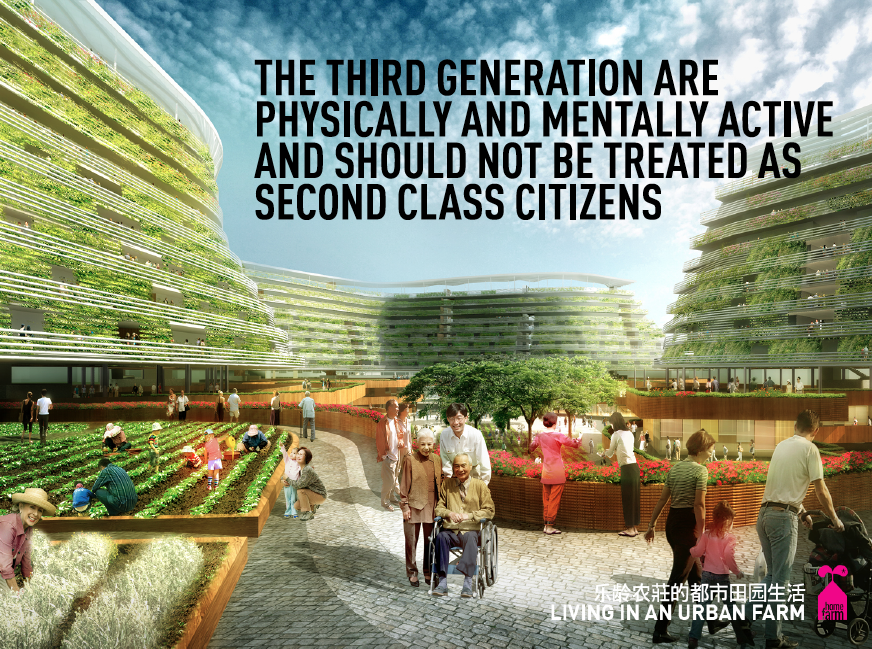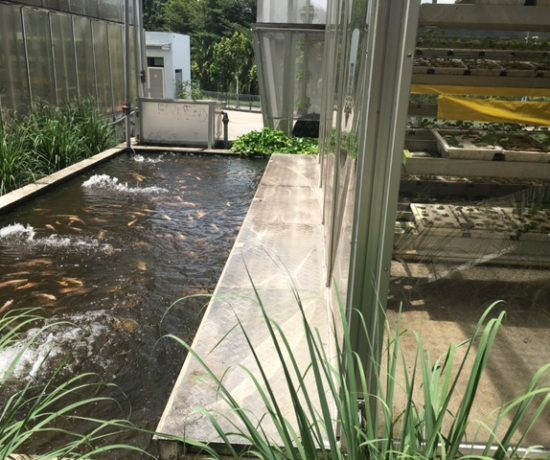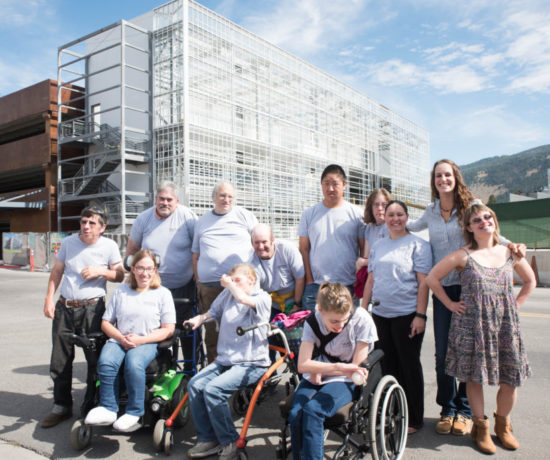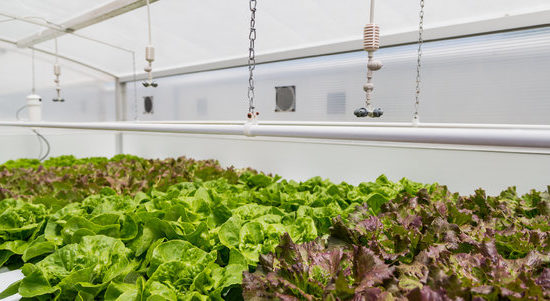SPARK Architects is a forward-looking architecture firm with offices in Bejing, London, Shanghai, and Singapore. Principle architect Stephen Pimby has conceptualized an innovative senior housing system termed HOME FARM. On the ground, HOME FARM addresses two major issues that Singapore faces: food security challenges and inadequate senior housing.
In the 1960’s, as farmland made way for development, the amount of space in Singapore available for feeding the country dwindled to 0.5% of the overall footprint, producing less than 10% of their food. This shortage of local food makes the country vulnerable to price swings and lack of supply from outside sources. There is also the concern of the massive carbon footprint created when 90% of the countries food is imported.
What is often typical in senior housing is common spaces that provide little function outside of a bed to sleep in, a place to eat and finding basic medical needs. HOME FARM combines a senior housing network with a functional urban agriculture system that allows residents to not only enjoy the social, emotional and physical benefits of greenspaces but also to reap the rewards of growing and selling produce.
According to Pimby, “HOME FARM utilized both horizontal and vertical growing systems, building entirely new possibilities for how we might live, be cared for and care for ourselves post-retirement.” This heartfelt concept gives hope to what is often a gloomy alternative for those that are no longer able or desire to live independently. HOME FARM is a model for overall community sustainability as it targets the achievement of Green Mark Certification and LEED Platinum Rating to reduce residents’ carbon footprint in multiple ways. These rating systems utilize standards that are now often typical measures in the building and design community. By incorporating a biomass waste system that capitalizes on the agricultural leftovers to generate electricity, the need for outside energy sources is significantly reduced, if needed at all. Plants feed on the nutrients from the aquaponics, while the fish that produce the nutrients are sold for consumption. The vegetables grown are managed and harvested by the residents that are then able to gain from the sale of the goods financially. This model is a win, win for consumers looking for locally produced food and those living at HOME FARM.
What Pimby has designed goes a far step beyond standard measures for greenspace, bringing in a whole new economy and standard of living inspired by a desire to do better for its residents and the connected community.




